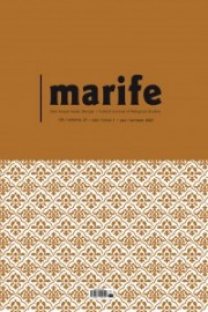İSLAM VE HIRİSTİYAN DÜŞÜNCESİNDE ÂLEMİN EZELİLİĞİ TARTIŞMALARI ÜZERİNE
ON THE DISCUSSIONS OF THE ETERNITY OF THE WORLD IN MUSLIM AND CHRISTIAN THOUGHT
The question of the eternity of the world was one of the most heated issues of debate between theologians and philosophers in the Middle Ages. This study aims to compare the Muslim and Christian traditions with regard to this question, with special reference to Fakhr al-Dīn al-Rāzī and Thomas Aquinas. As theologians, both these figures inherited the mainstream interpretation within their respective traditions, that the theory of the eternity of the world is against the main principle of religion, for it both amounts to a rejection of the world's creation and is also rationally untenable. The study shows that by being open towards philosophy, both Rāzī and Aquinas take a different line from most of the theologians in their respective traditions. Although they criticise the arguments of both the theologians and the philosophers, their understanding of creation shows that they are closer to the philosophers than the theologians. Both lay stress on the world's total dependence on God rather than on the world's temporal creation.
